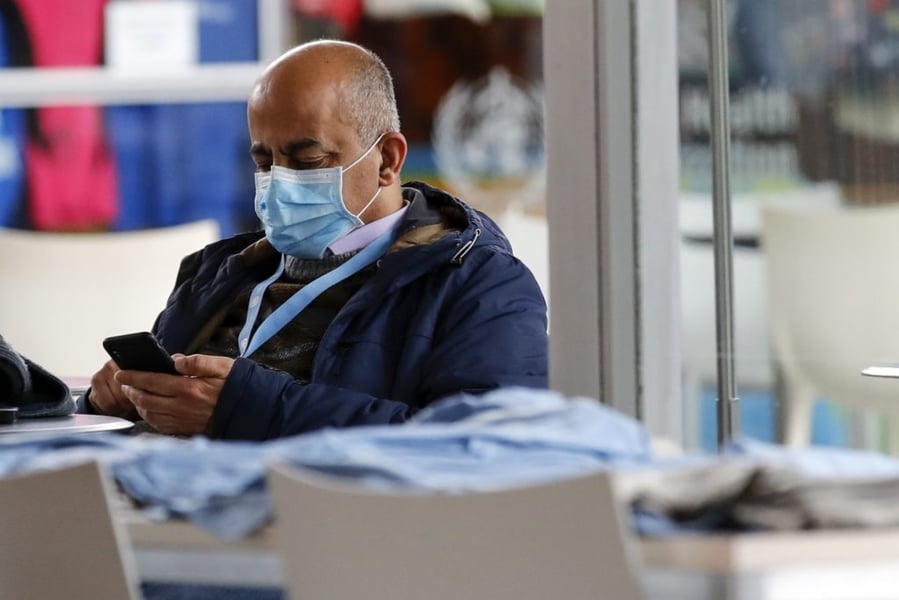

Not too long along, I was traveling around the country nearly every week to present educational seminars about Social Security and Medicare to financial advisers and consumers. I remember thinking I would love a break in my hectic travel schedule so I could focus on my writing deadlines and other projects. Talk about answered prayers!
Like many of you, I am confined to my home and practicing “social distancing." It’s not a hardship for me. I have been working from home for nearly a decade, so being homebound is not a major change to my routine although my daily exercise classes have been replaced with Jazzercise videos in my basement, and my retired husband is getting his workout by hauling 40-pound bags of mulch. We take long walks around our neighborhood where the streets are empty and the bike trails are full, waving to neighbors that we haven’t seen in years.
I know we are luckier than many people, including public safety and health care workers who continue to report to work on the front lines of the coronavirus pandemic, and the many hospitality, retail and restaurant industry workers who suddenly found themselves without a job or a paycheck.
Thanks to technology, my colleagues and I can work remotely, starting our mornings off with a video conference. My computer screen looks like an episode of "The Brady Bunch" or "Hollywood Squares," filled with the faces of reporters and editors working at home from New York to Michigan and Maine to Maryland. Business casual tops meet pajama bottoms and sweatpants. Babbling toddlers and barking dogs provide background noise.
I’m curious about how InvestmentNews readers are coping during the disruption. Please send me your stories about working from home and how you are communicating with your clients during these turbulent times. You can email me at [email protected]. Your insights will help us report on the evolving new normal in the financial advice industry.
“Investors are concerned and scared and they should be,” said Ken Unger, a 40-year veteran of the financial services industry who coaches high-level advisers through his Academy of Financial Advisors. “At this time, a financial adviser’s leadership is not just helpful, it’s critical.”
Mr. Unger noted that clients need leadership, guidance and comfort in times like these.
“Retirees need to know their cash flow need will be met and savers need to know that someday they will be able to retire,” he wrote in an open letter to the financial advice industry. “We are not clairvoyants, but we can be hand holders,” he added. “We can share with clients that we are doing the best we can to communicate and understand their situation.”
So what are you doing to guide, comfort and reassure your clients? Are you being proactive or merely responsive? What you do — or don’t do — today can have long-term ramifications for your business. During the previous financial crisis in 2008, clients made decisions to switch advisers and financial providers 18 to 24 months after that crisis, according to George Walper, president of the Spectrem Group.
My best friend, a retired nurse who expects to be called back into service to administer COVID-19 tests, texted me that her daughter, a single mother of two young children, was just laid off from her hotel job. My older son, a DJ, had traveled to Texas to perform at several events that were cancelled after the South by Southwest festival in Austin was shut down, meaning he didn’t get paid or get reimbursed for his travel costs. He’s just one more victim of the gig economy.
These examples may offer a glimpse into the new realities for retirees: Discretionary funds they had earmarked for visiting bucket-list travel destinations, temporarily off limits as a result of the worldwide pandemic and international border closures, could be shifted to support newly unemployed family members.
While current and near-retirees may feel most vulnerable to both the health threats of the coronavirus and the steep losses to their retirement savings, it’s important to help them put their losses in context. It is unlikely that their portfolios are invested 100% in equities, so their personal paper losses are much smaller than the overall stock market decline.
In addition, those collecting Social Security have been assured by the agency administrator, Andrew Saul, that their benefits will continue uninterrupted despite the closure of local offices to protect both the agency's employees and beneficiaries
There is a difference between fear, which is a natural reaction to this scary situation, and panic, which can trigger irrational and possibly irreversible decisions. A valuable financial adviser will address their clients' fears and hopefully prevent them from hitting the panic button.
[More: The crisis adviser is a leader]

Blue Anchor Capital Management and Pickett also purchased “highly aggressive and volatile” securities, according to the order.

Reshuffle provides strong indication of where the regulator's priorities now lie.

Goldman Sachs Asset Management report reveals sharpened focus on annuities.

Ahead of Father's Day, InvestmentNews speaks with Andrew Crowell.

Cerulli research finds nearly two-thirds of active retirement plan participants are unadvised, opening a potential engagement opportunity.
Barely a decade old, registered index-linked annuities have quickly surged in popularity, thanks to their unique blend of protection and growth potential—an appealing option for investors looking to chart a steadier course through today’s choppy market waters, says Myles Lambert, Brighthouse Financial.
How intelliflo aims to solve advisors' top tech headaches—without sacrificing the personal touch clients crave
